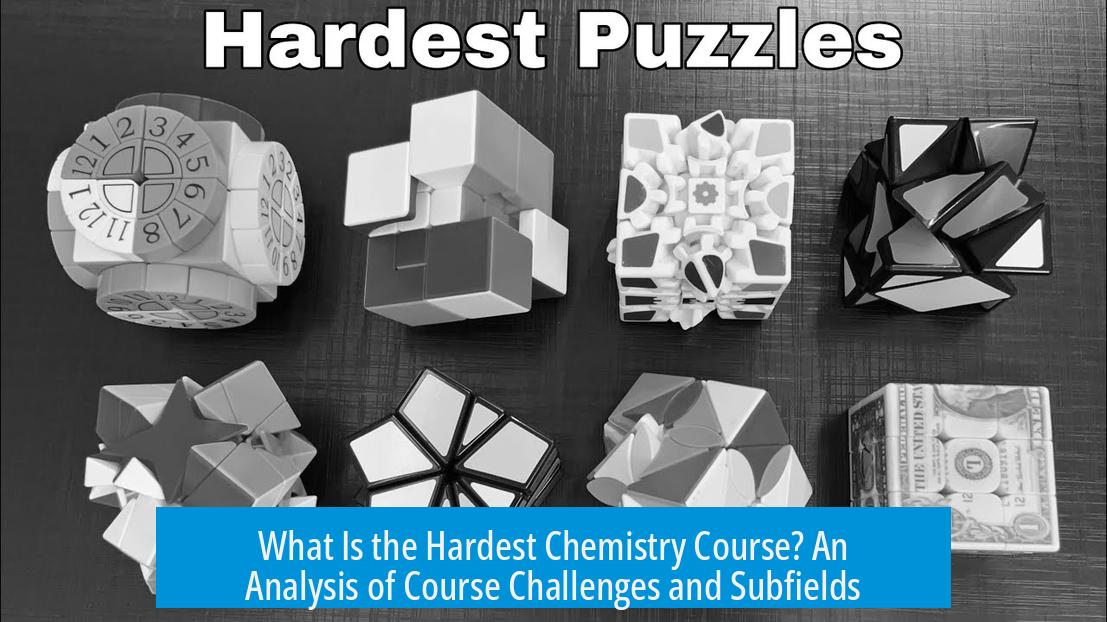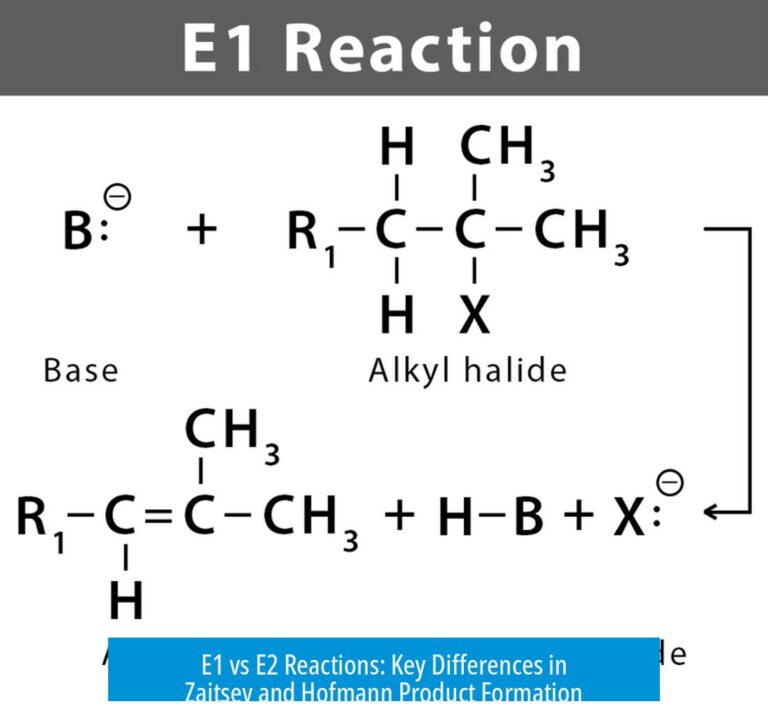What Is the Hardest Chemistry Course?
Physical chemistry is widely regarded as the hardest chemistry course, primarily because of its heavy mathematical content and conceptual complexity, including quantum chemistry, thermodynamics, and kinetics. Theoretical chemistry, a subfield within physical chemistry, often presents an even greater challenge due to abstract concepts and difficult mathematical treatments.
Why Physical Chemistry Is the Hardest
Physical chemistry stands out for its integration of chemistry with advanced math and physics principles. Students frequently report frustration with this course.
- It requires a solid understanding of calculus and algebra.
- Subjects like quantum mechanics and thermodynamics demand abstract thinking.
- Mathematical problem-solving dominates the coursework.
Many students struggle with the math component, making progress slow unless they revisit foundational math skills. Instructors suggest practicing numerous problems to gain fluency.
Subfields Increasing Difficulty
Theoretical chemistry intensifies the challenge. It delves deeper into quantum mechanics and mathematical models of chemical phenomena.
- It is often described as confusing and hard to grasp.
- Even students who excelled in physical chemistry find it tough.
Meanwhile, computational chemistry overlaps with physical chemistry, applying these concepts using computer simulations, increasing complexity.
Contrast with Other Chemistry Courses
Organic Chemistry
Organic chemistry emphasizes reaction mechanisms, structure, and synthesis with less mathematical demand.
- Success relies mainly on memorization and conceptual understanding.
- Some students dislike organic chemistry due to the volume of reactions to learn.
- Others prefer it over physical chemistry because it is less abstract.
Mastering organic chemistry often helps with biochemistry, which leans heavily on organic concepts, though biochemistry introduces occasional physical chemistry techniques.
Inorganic Chemistry
Inorganic chemistry challenges students with group theory and crystal structures, which introduces abstract concepts but less math than physical chemistry.
- Group theory concepts can puzzle students initially.
- The field sometimes incorporates physical chemistry, but the intensity varies.
Analytical Chemistry
Analytical chemistry focuses on techniques and methods to analyze substances.
- It generally involves less physical chemistry.
- The course often balances lab work with theory.
- Difficulty depends partly on instructor and lab dynamics.
Biochemistry and Computational Chemistry
Biochemistry is less math-intensive, focusing instead on biological molecules and pathways.
- It can unexpectedly incorporate complex physical chemistry techniques.
Computational chemistry overlaps with physical chemistry heavily by modeling molecular behavior using software, blending theoretical concepts with practical computation.
Personal Preferences Affect Perceived Difficulty
The hardest chemistry course varies with individual strengths and interests.
- Students who prefer numerical and problem-solving tasks often find physical chemistry more approachable.
- Those who like memorization and conceptual understanding tend to prefer organic chemistry.
- Success depends on prior math skills and teaching methods.
Different instructors and textbooks influence the perceived difficulty. A supportive environment may ease the challenge significantly.
Summary of Course Challenges
| Course | Main Challenges | Mathematical Demand | Typical Student Reactions |
|---|---|---|---|
| Physical Chemistry | Quantum mechanics, thermodynamics, kinetics | High (calculus-based) | Frustration, intimidation, but rewarding for mathematically inclined |
| Theoretical Chemistry | Advanced quantum theory, abstract models | Very high | Often viewed as most difficult chemistry course |
| Organic Chemistry | Reaction mechanisms, memorization | Low to moderate | Likes/dislikes vary; conceptual focus |
| Inorganic Chemistry | Group theory, crystal structures | Moderate | Challenging but less math-heavy |
| Analytical Chemistry | Lab techniques, instrumentation | Low | Less math, depends on instructor |
| Biochemistry | Biomolecules, pathways | Low | Generally easier but with occasional complex topics |
Key Takeaways
- Physical chemistry ranks as the hardest chemistry course due to math intensity and complex theories.
- Theoretical chemistry is often even tougher, demanding deep understanding of abstract concepts.
- Organic and inorganic chemistry pose different challenges, mainly conceptual rather than mathematical.
- Analytical and biochemistry are generally less math-heavy but may include complex ideas.
- Individual preferences and prior math skills influence difficulty perception.
- Effective learning strategies and good teaching can mitigate the challenges of difficult courses.





Leave a Comment